order histories, retained contact details for faster checkout, review submissions, and special promotions.
Forgot password?
order histories, retained contact details for faster checkout, review submissions, and special promotions.
Locations
Orders Processing,
Shipping & Receiving,
Warehouse
2 Shaker Rd Suites
B001/B101
Shirley, MA 01464
Production Lab
Floor 6, Suite 620
20700 44th Avenue W
Lynnwood, WA 98036
Telephone Numbers
Tel: +1 (206) 374-1102
Fax: +1 (206) 577-4565
Contact Us
Additional Contact Details
order histories, retained contact details for faster checkout, review submissions, and special promotions.
Forgot password?
order histories, retained contact details for faster checkout, review submissions, and special promotions.
CD86
CD86 molecule
CD86 is a type I membrane protein that is a member of the immunoglobulin superfamily. It is expressed by antigen-presenting cells, and it is the ligand for two proteins at the cell surface of T cells, CD28 antigen and cytotoxic T-lymphocyte-associated protein 4. Binding of this protein with CD28 antigen is a costimulatory signal for activation of the T-cell. Binding of this protein with cytotoxic T-lymphocyte-associated protein 4 negatively regulates T-cell activation and diminishes the immune response. Alternative splicing results in two transcript variants encoding different isoforms. Additional transcript variants have been described, but their full-length sequences have not been determined.
| Gene Name: | CD86 molecule |
| Synonyms: | CD86, Activation B7-2 antigen, B7-2, B7.2, B70, CD86 molecule, CTLA-4 counter-receptor B7.2, CD86 antigen, FUN-1, LAB72, BU63, CD28LG2, Ctla-4 counter-receptors b7.2 |
| Target Sequences: | NM_006889 NP_008820.3 P42081 |
Publications (1)
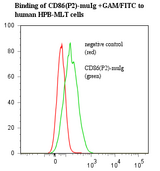
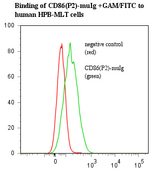
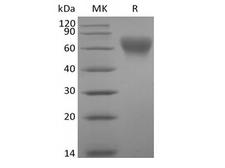
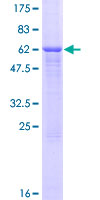
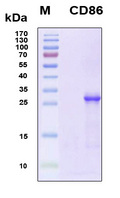
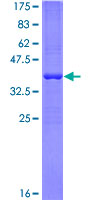

If you do not find the reagent or information you require, please contact Customer.Support@LSBio.com to inquire about additional products in development.









